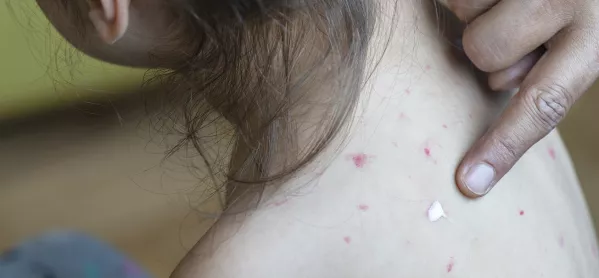Last week, the UK Health Security Agency (UKHSA) issued a warning over the rising number of measles cases, with over 210 confirmed cases logged since October.
While the majority of cases were found in the West Midlands, Professor Dame Jenny Harries, chief executive of the UKHSA, warned that “there is now a very real risk of seeing the virus spread in other towns and cities” - partly owing to low vaccine rates in some areas.
This has led to growing awareness among schools about the risks posed to pupil health and the knock-on impact on attendance - particularly in primary schools, as most cases are in pupils under 10.
In response to this, the Department for Education has issued guidance to schools and nurseries on what to do if they have a confirmed or suspected measles outbreak. Here is the key information for schools:
Isolate the infected pupil
The DfE guidance states that schools should follow the UKHSA measles guidance, and exclude the infected pupil from the school until four days after the rash first appeared.
A healthcare staff member or appropriate senior staff member - such as the school nurse, welfare officer, headteacher, health and safety officer or student health adviser - should be informed of all cases that are likely or confirmed.
Schools should also contact their local Health Protection Team, which can provide specialist public health advice and operational support to schools. The UKHSA guidance also states that an “appropriate letter or factsheet will be sent to the school to send to parents” in this situation.
More detailed information about infection control in school settings can be found in the UKHSA guidance on infection control in schools as well as advice on measles and school trips.
Use absence register codes
For confirmed measles cases, schools should continue to use the usual register codes for absence owing to illness (code “I”).
If a child needs to isolate following the government public health advice, the DfE advises that the most appropriate code is an absence authorised by the school (code “C”).
From September 2024, the government will have a new register code to cover absences owing to public health guidance.
Unvaccinated pupils and staff may require isolation for 21 days
Schools have also been advised that anyone unvaccinated for measles and in contact with a measles case could be excluded for three weeks.
“We have advised schools that anyone who has not had at least one dose of MMR and has been in contact with a case of measles could be excluded from school for up to 21 days - the time it can take for symptoms to develop, while still passing the infection to others,” a UKHSA spokesperson told Tes.
The UKHSA advice also states that risks to vulnerable students or teachers from infection should be considered as part of any plans.
Meanwhile, in areas of large outbreaks, the UKHSA said it is for local authority health protection teams and headteachers to agree on the best way to prevent further spread.
Ofsted will take into account measles cases
The DfE has confirmed that Ofsted will take measles absences into account during an inspection.
However, it emphasises that schools should demonstrate that they are “doing all they can to achieve the highest possible attendance”, even if attendance numbers are lower than before.
Special schools should follow additional guidance
Special schools should also follow the UKHSA measles guidance, but there are additional measures for pupils who may be more vulnerable to exposure to measles.
A school’s local Health Protection Team will carry out a risk assessment of the situation based on the information provided and the type of infection.
It will ask the school to share information to help it understand the size and nature of the outbreak, and advise on any recommended actions.
Staff advised to get MMR vaccination
Government guidance advises all children and adults to get both doses of the MMR vaccine. Vaccinations can be booked through your local GP.
As a precaution, the MMR vaccine is not recommended for pregnant women. They are advised to call NHS 111 if they have been in close contact with someone who has measles.
What is measles?
Measles is a highly infectious virus that can cause severe illness, especially in certain groups including babies, small children, pregnant women and people with weak immunity.
Symptoms include fever, conjunctivitis, cough, runny nose and sneezing.
It is followed by a rash, which appears brown or red and blotchy. The rash develops two to four days after the onset of fever and spreads from the head to the body over the next three to four days.
It has an incubation period ranging between seven to 21 days. Individuals are typically infectious from four days before and up to four full days after rash onset.
For the latest education news and analysis delivered directly to your inbox every weekday morning, sign up to the Tes Daily newsletter





